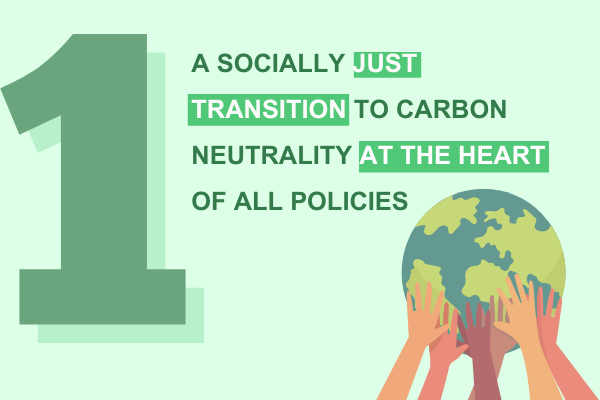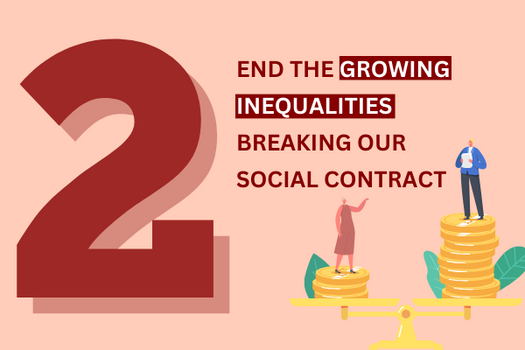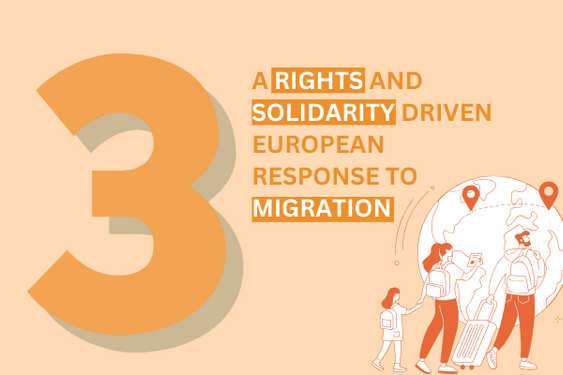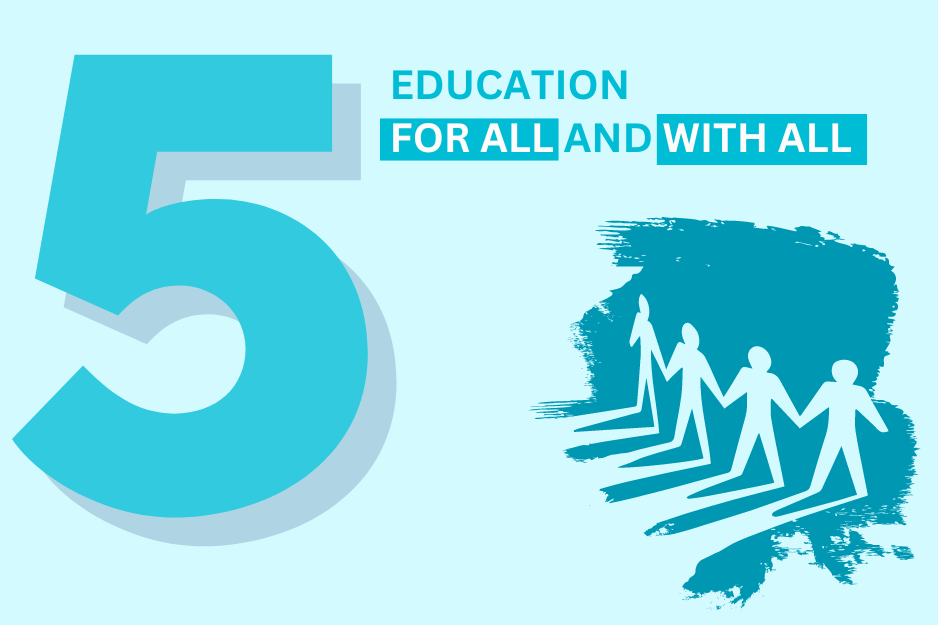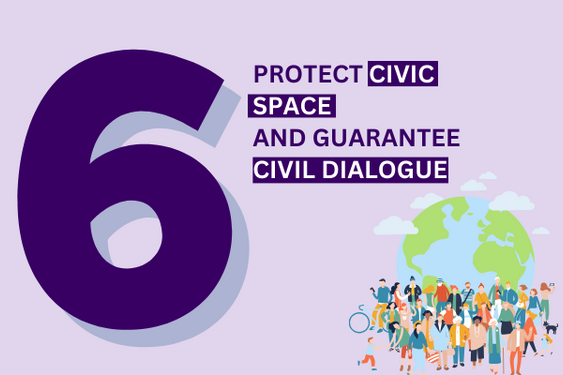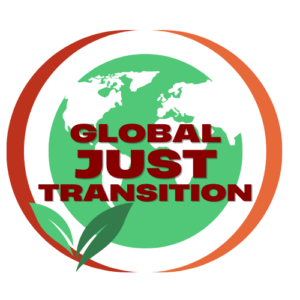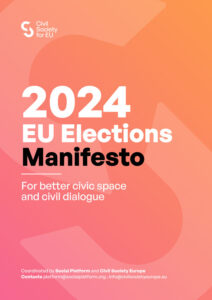A rights and solidarity driven European response to migration
As millions sought refuge from Ukraine, Europe’s response showed its immense capacity and resilience. This powerful demonstration of welcoming and integrating people should spark a re-evaluation of migration policies and boost efforts towards a unified European approach to migration.

Vision
We advocate for a unified and inclusive European migration policy based on human rights. This policy should prioritise joint solutions with third countries, based on solidarity with migrants and between nations. It must improve safe and legal migration routes, support migrants at European borders, promote their long-term integration and engagement, and encourage a constructive discourse on migration and diversity. Read more about SOLIDAR’s work on migration and inclusion.
Key asks
- The EU should ensure that the EU Pact on Migration and Asylum does not only lead to lower legal safeguards and easier deportations. The implementation of the Pact and existing EU legislation should prioritise solidarity, through the European Parliament’s oversight of the effectiveness of the Solidarity Mechanism and encouragement of relocation, while monitoring fundamental rights at borders and promoting alternatives to detention. Member States must urgently improve reception conditions.
- The EU should ensure that all migration partnerships with third countries are mutually beneficial, respect human rights and strengthen migrants’ rights in and outside of the EU. Desist from existing agreements that fund authoritarian regimes for the purpose of preventing migrants from reaching EU territory (EU-Turkey, EU-Libya, EU-Tunisia, EU-Egypt among others).
- The EU should act to tackle the root causes of forced migration in partner countries, notably conflicts, poverty and climate change, abandon EU and national external policies that cause displacement, establish an EU search and rescue operation with mandate to save lives at the external borders, and introduce a binding humanitarian exemption to fight criminalisation of solidarity with migrants.The European external action budget shall not be used for borders’ management nor to curtail migration.
- The EU should promote the adoption and expansion of regular, structural avenues for migration for all purposes, leading to quality permits. This can be done by increasing the number of refugees admitted under existing resettlement schemes as well as by promoting the use and enhancement of humanitarian admission, humanitarian visas, complementary labour pathways, subsidiary protection, temporary protection, family reunification, economic admissions at all skills levels, including for job seeking and student mobility; as well as by providing coordinated, long-term solutions for people displaced by the war in Ukraine, with a smooth transition from temporary protection status.
- The EU should monitor the implementation of the Action Plan on Integration and Inclusion, highlighting good practices, and consult civil society, including migrant and refugee-led organisations, in the mid-term review of the Action Plan. Increase the funding allocated to the next cycle of the Asylum Migration and Integration Fund, in particular the earmark for inclusion.
What have we done so far?
SOLIDAR cooperate with its members in a dedicated Task Force on Migration to promote a governance of migration that normalises human mobility and is based on fundamental rights and solidarity. SOLIDAR and its members:
- Call on the EU and Member States to ensure that the right to seek asylum is enshrined in policy and practice, and to carry out the necessary reforms of European asylum systems to achieve a fair sharing of responsibility.
- Support the improvement and development of safe and regular channels of entry for other types of migration.
- Advocate for the long-term inclusion of people in Europe, understood as a process that enables the participation in society of all individuals and social groups, going beyond a purely utilitarian approach and enabling all to reach their full potential, regardless of their status upon arrival.
- Highlight positive experiences and transfer learning to inform policy-making, for example by providing sustainable practices of integration or by improving the inclusion of students with a migrant background in higher education in Europe.
- Provide counter-narratives, giving visibility to the indispensable contribution of all forms of human mobility to social, economic and cultural prosperity.




